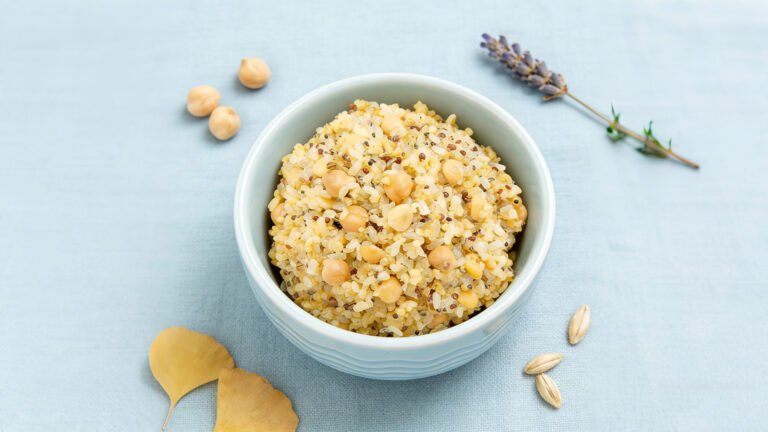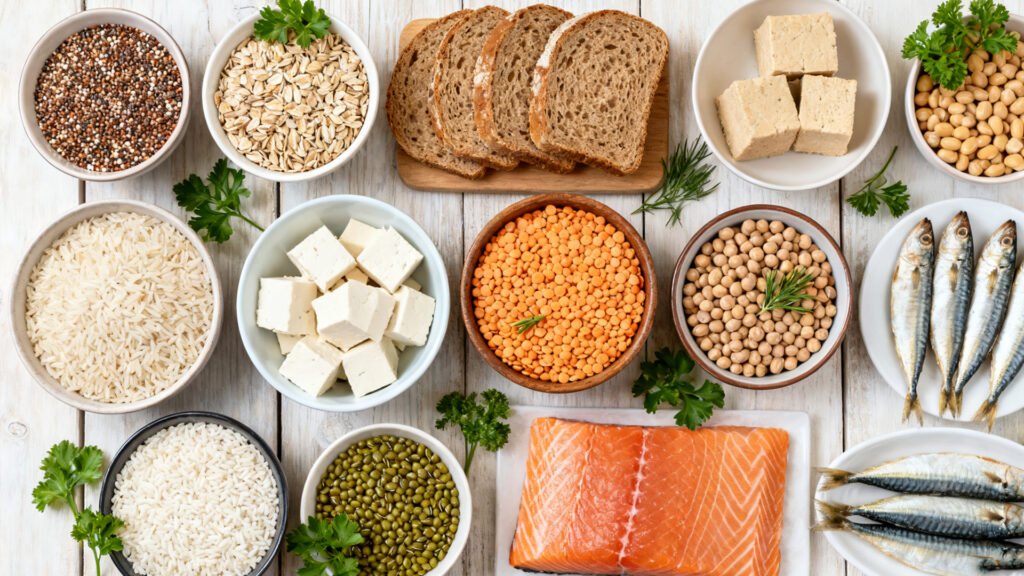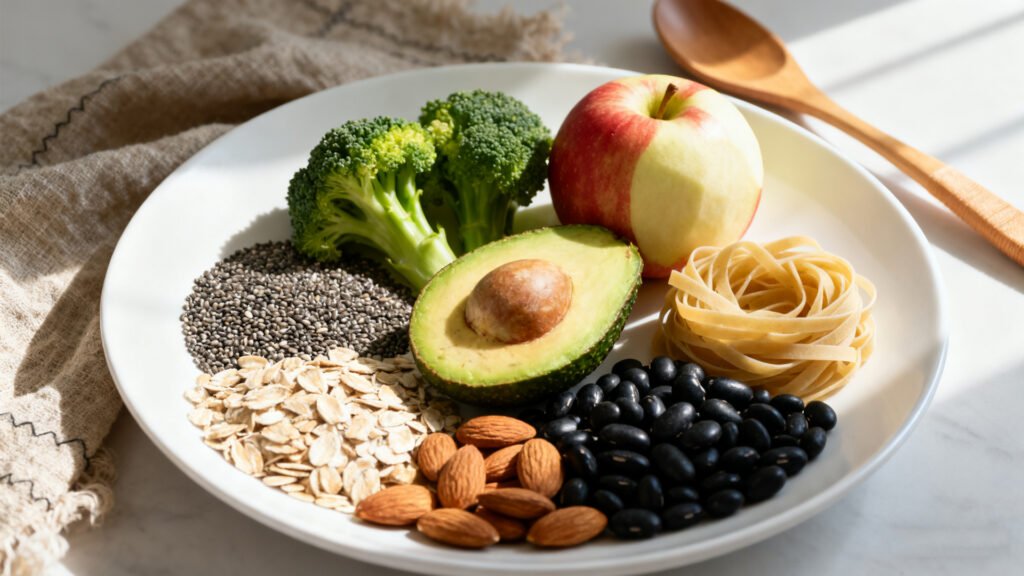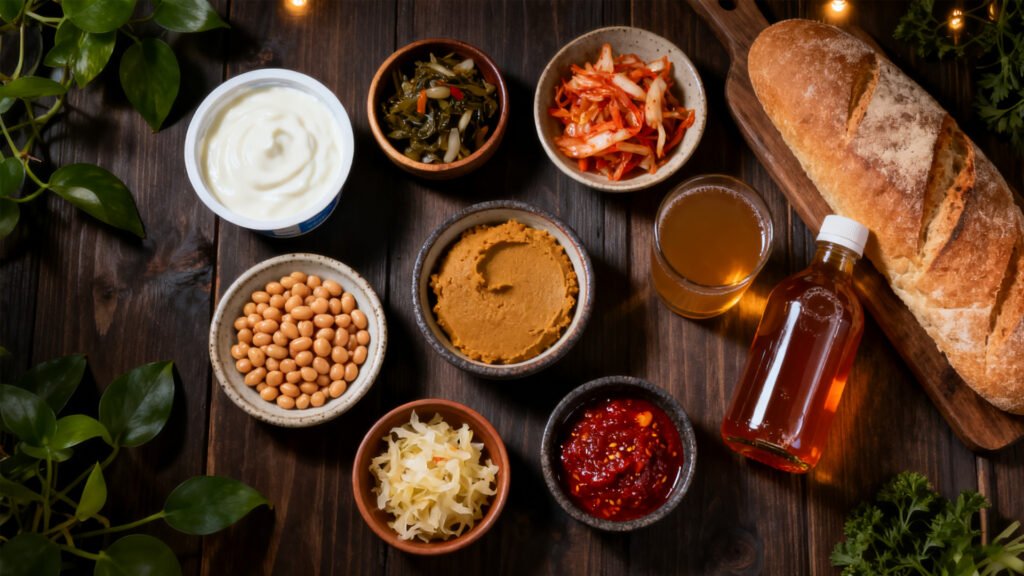
Contact Us through info@lovekonjac.com
Maintaining a healthy gut is crucial for overall well-being. The gut, also known as the gastrointestinal tract, plays a vital role in digestion, nutrient absorption, and immune function. In recent years, there has been increasing recognition of the importance of gut health and its impact on various aspects of our well-being. This article will guide you through seven simple steps to improve your gut health naturally.
1.a diverse range of fruits and vegetables in different colors is beneficial for gut health. Each color represents specific vitamins, minerals, and antioxidants that support overall well-being. For instance, orange vegetables like carrots and sweet potatoes are rich in beta-carotene, while leafy greens like spinach and kale provide folate and fiber.
2.Embracing whole grains like quinoa, brown rice, and whole wheat bread instead of refined grains helps diversify carbohydrate intake and provides more fiber and beneficial compounds for the gut microbiota.

3.Varying protein sources by including plant-based options such as beans, lentils, tofu, and tempeh, along with fatty fish like salmon and sardines, offers a wider range of nutrients, including omega-3 fatty acids.
4.Experimenting with different herbs and spices adds flavor and additional health benefits, such as the anti-inflammatory properties of ginger and the antioxidant and anti-cancer effects of turmeric. By incorporating these tips, you can enhance gut health through food variety.

One of the key steps to improving your gut health is to include prebiotic fermentable fiber in your diet. Prebiotics are indigestible fibers that act as food for the beneficial bacteria in your gut, helping them thrive and multiply. Some examples of prebiotic-rich foods include:
Konjac noodles are packed with soluble fiber known as glucomannan. This type of fiber acts as a prebiotic, providing nourishment for the beneficial bacteria in your gut. By consuming konjac noodles, you can support the growth of these friendly bacteria, which play a vital role in maintaining a healthy gut microbiome.

By incorporating these foods into your meals, you can provide the necessary fuel for the growth of beneficial gut bacteria.

Fermented foods are rich in probiotics, which are beneficial bacteria that promote a healthy gut environment. Including fermented foods in your diet can help replenish and maintain a diverse and balanced gut microbiota. Some fermented foods you can add to your diet are:
Yogurt: Look for varieties that contain live and active cultures.
Kefir: A fermented milk drink that is rich in probiotics.
Sauerkraut: Fermented cabbage that provides beneficial bacteria.
Kimchi: A traditional Korean dish made from fermented vegetables.
Kombucha: A fizzy, fermented tea drink.
Miso: A traditional Japanese seasoning made from fermented soybeans.
Consuming these foods regularly can introduce a variety of beneficial bacteria into your gut and contribute to improved gut health.
Processed foods and added sugars can have a detrimental effect on gut health. They can disrupt the balance of gut bacteria and contribute to inflammation in the gut. To improve your gut health, limit your intake of processed foods, sugary snacks, sodas, and sweetened beverages. Instead, focus on consuming whole, unprocessed foods that are rich in nutrients and support a healthy gut environment.

Adequate hydration is essential for maintaining a healthy gut. Water helps keep the digestive system running smoothly, aids in nutrient absorption, and promotes regular bowel movements. Make sure to drink enough water throughout the day to support optimal gut health. Limit the consumption of sugary drinks and opt for water as your primary beverage.


Chronic stress can have a negative impact on gut health. High-stress levels can disrupt the balance of gut bacteria and contribute to digestive issues. Find stress-management techniques that work for you, such as meditation, deep breathing exercises, regular physical activity, and engaging in activities you enjoy. Prioritizing stress reduction can significantly improve your gut health.
Quality sleep is crucial for overall health, including gut health. Lack of sleep has been linked to an imbalance in gut bacteria and increased inflammation in the gut. Aim for 7-9 hours of uninterrupted sleep each night to support a healthy gut and overall well-being.
